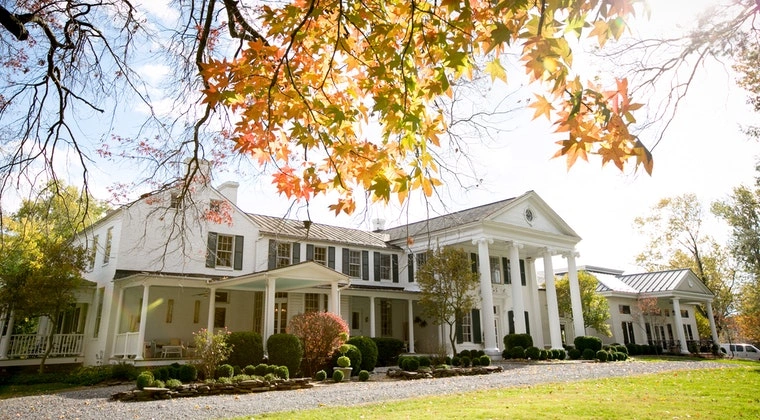Real estate investments have been one of the most stable investments compared to assets like stocks and bonds. Housing prices in the US alone increased by 48.55 percent in the past 10 years alone. But a common challenge investors and homeowners encounter is determining the value of a property and how to get the most significant returns out of their investments.
As a homeowner or a property investor, it’s worth knowing the characteristics of value in real estate and how you can increase the value of your own property. This way, you can implement the proper renovation or changes that could both increase your level of comfort and the value of your property which is helpful if you’re planning to sell in the future.
First, let’s rehash price appreciation and how it works, then we’ll move on to what influences it and how you can increase yours.
What is Price Appreciation?
In real estate, price appreciation refers to how much a property’s worth will increase over time. Price appreciation is determined by many factors and trends such as location, and supply and demand.
When buying a property, it’s important to have appreciation in mind.
The Characteristics of Real Estate Value
1. Demand
Supply and demand will always affect the value of a property. However, demand will depend on the trend and the buyers. The demand for a particular piece of real estate will change depending on the preferences of each person.
2. Utility
Utility refers to the usefulness of the property. For a property to be valuable, it has to have utility. This creates a desire for possession and provides satisfaction. The question to ask here is if the property or home will meet the needs of a person.
3. Scarcity
For a property to have value, it has to be scarce. If the property isn’t unique, or many houses like it are for sale, then the price of the home will be negatively affected.
4. Purchasing Power
The more buyers the better, this means that people should be able to afford the price that you have set. Aside from the property being desirable, it should also be sellable as well.

Factors that Affect Property Value
The exact value attributed to the property isn’t an easy thing to measure. For example, if two appraisers appraised the exact same property, they might end up with two different values.
However, the factors that affect the value of a property will be the same wherever you go.
1. Neighborhood
You’ve heard it a thousand times before but when it comes to real estate, your priority is to choose a good location. A good neighborhood that’s a short distance away from the market, schools, parks, and the main road would be ideal.
You can always renovate a home, but once you’ve chosen a location, that’s it.
Also, you have to choose a neighborhood that looks developed. This means that quality landscaping should be seen everywhere and the roads should be paved well.
Choose a neighborhood that’s not only considered “good” by today’s standards but will continue to be desirable in the future. This way, the price will continue to go up.
2. Access to Transportation
The property has to be accessible. Not only should it be near schools, offices, shopping centers, and expressways, but access to transportation should be easy too.
Transportation impacts the price appreciation of a property. You’ll notice that as more modes of transportation are available, the price of the property goes up as well. This is because transportation contributes to saving time, and time is an important asset for everyone.
Choose a property that has access to all types of transportation.
3. Current and Future Developments
Existing amenities and facilities are also factors that affect the value of the property. Check the security and safety protocols not just in the property but in surrounding areas as well. The layout and construction of the property should be of quality and in good condition.
In addition, be aware of what future developments are in the works both in the neighborhood and surrounding areas. Research how upcoming developments will affect the value of your home and your lifestyle.
There are commercial developments that can improve property value and then there are those that can depreciate it. For example, parks and restaurants can contribute to the price appreciation of your property, while fire stations and hospitals can depreciate the value as the area will become noisier.
4. Developer’s Reputation
Developers with a good reputation will be expected to have a higher quality of construction and design compared to others. This means that reselling can be easier and the property can be sold at a higher value.
Always check the developer’s reputation in the industry and their records.
5. Smart Upgrades
More people are now inclined to install and invest in smart systems, so technologies and having a smart home will increase the value of your property. In the future, new home builds will already be equipped with smart automation, such as curtain, voice assistants, and built-in security systems.
People will want to streamline their homes for an easier life, so smart upgrades will be a good investment for the future.
6. Economic Growth
Population growth and employment are some factors that will influence the appreciation of a property. Higher economic growth and rise in incomes make it possible for people to spend more on real estate which will push up the price because the demand will also increase.
There are other factors that drive the value of the property like interest rates and government policies, however, the ones listed above are the most common and substantial factors that you can assess and have control over.
Whether you’re planning to buy, sell, or upgrade your home, it’s important to know what drives the value of your property so you can make the best decision based on data. You can then justify your spending knowing that you’re making the right choice and a good investment.
